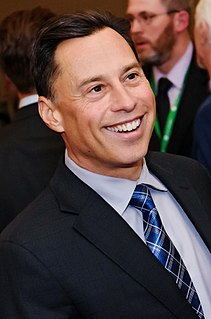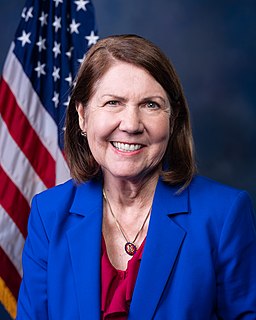A Quote by Mariana Mazzucato
Our current model of capitalism and the dominant ideas in policy making have led to a failure of investment by both the public and the private sector in the things that drive productivity, and which affect its distribution.
Related Quotes
Government investment unlocks a huge amount of private sector activity, but the basic research that we put into IT work that led to the Internet and lots of great companies and jobs, the basic work we put into the health care sector, where it's over $30 billion a year in R&D that led the biotech and pharma jobs. And it creates jobs and it creates new technologies that will be productized. But the government has to prime the pump here. The basic ideas, as in those other industries, start with government investment.
But, that’s the whole point of corporatization - to try to remove the public from making decisions over their own fate, to limit the public arena, to control opinion, to make sure that the fundamental decisions that determine how the world is going to be run - which includes production, commerce, distribution, thought, social policy, foreign policy, everything - are not in the hands of the public, but rather in the hands of highly concentrated private power. In effect, tyranny unaccountable to the public.
Ontario's auto sector is a cornerstone of our economy - a key source of our ability to export, innovate and create jobs. In this highly competitive global economy, we need to drive further investment and ensure the sector remains strong. I am confident that this new partnership, with Ray Tanguay's strategic advice and leadership, will allow Ontario to increase our competitiveness, productivity, and market share in the auto sector, and I look forward to their important work contributing to a more prosperous, innovative Ontario economy.
We try to prevent the creation of artificial rents. Rather than setting up quotas to stop imports we levy a tariff, that would be better. Or we pay wages in the public sector which are roughly equivalent to the productivity in the private sector and we don't therefore make it a special benefit to get a bureaucratic position.
Private sector unionization is down to practically seven percent. Meanwhile the public sector unions have kind of sustained themselves [even] under attack, but in the last few years, there's been a sharp [increase in the] attack on public sector unions, which Barack Obama has participated in, in fact. When you freeze salaries of federal workers, that's equivalent to taxing public sector people.
What I really think is that our current model of copyright is fundamentally broken. We badly need to replace it with a different system for remunerating creators, which gets it the hell out of the face of the public (who were never aware of it to begin with in the pre-internet dead tree era). Unfortunately, the current copyright model is enshrined in international trade treaty law, making it almost impossible to work around.
I'm not an academic; I'm not an archaeologist. I'm a writer, communicating ideas to the public. There is a model of how the past is, and a lot of academic archaeology is about refining the model. It's not about changing the model radically. I'm not aware of any current which is about radically changing the model. It's just me, really.

































